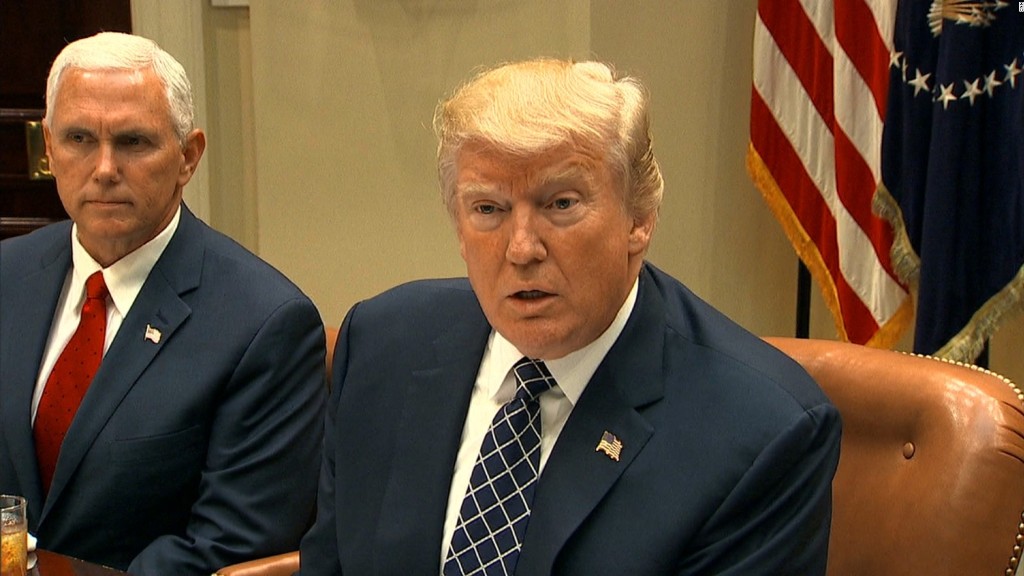
A new Senate bill to repeal Obamacare would leave 32 million more people uninsured by 2026 than under current law, according to a Congressional Budget Office analysis released Wednesday.
The Republicans' latest attempt to fulfill their years-long pledge would effectively repeal Obamacare in 2020, giving lawmakers until then to come up with a replacement plan.
The ramifications of not replacing the law immediately would be severe. Three-quarters of the nation would live in areas with no insurers participating in the individual market by 2026 -- leaving many without an option if they do not have employer-provided or government health insurance, such as Medicare or Medicaid.
Also, premiums would about double by 2026, compared to current law, the CBO found.
It's unlikely GOP lawmakers will approve this bill, though these frightening figures will make it even harder for them to proceed down this path. House Republican leaders cast aside an attempt to swiftly and simply repeal Obamacare earlier this year after encountering stiff opposition from fellow lawmakers and others, who said it was critical to come up with a replacement bill at the same time.
The idea unexpectedly resurfaced earlier this week after Republicans' effort to repeal and replace Obamacare ran aground in the Senate on Monday night. Senate Majority Leader Mitch McConnell said he would call a vote on a repeal bill modeled on 2015 legislation that was passed by both chambers before being vetoed by then-President Obama.
This bill, unveiled Wednesday afternoon, is meant to be a wake-up call for Republican senators, to serve as a reminder that most of them voted for it just two years ago. McConnell is essentially daring Republicans to reverse their vote and support the status quo they've been campaigning against for seven years.
Related: Trump to GOP senators: 'Inaction is not an option'
The CBO score could also pressure Republicans to consider going back to the negotiating table to find a path forward on their more comprehensive health care bill, which would leave 22 million more Americans uninsured over the next decade. That is what President Trump asked them to do on Wednesday during their lunch at the White House, though earlier in the week he called for lawmakers to repeal the Obamacare now and replace it later.
The administration pushed back on the report.
"We continue to believe that CBO's methodology is flawed, and this score fails to take into account the president's full plan, which includes a replacement for Obamacare and administrative actions to reduce costs and expand access to quality, affordable care," a White House official said.
Here's what the new bill would do:
-- Get rid of the individual and employer mandates, two of the least favorite provisions of the law, by reducing the penalty to $0. This provision would be retroactive to 2016.
-- Effectively end Obamacare in 2020 by eliminating the federal subsidies that help people afford individual coverage.
-- Eliminate Medicaid expansion starting in 2020.
-- Repeal taxes on the wealthy, health insurers, medical device makers and others.
-- Defund Planned Parenthood for one year.
-- Increase funding for substance abuse and mental health needs by $1.5 billion over two years.
Enacting the legislation would decrease deficits by $473 billion over the next decade, however this doesn't take into account the cost of a replacement plan.
Related: Will Obamacare really fail?
In some important ways, however, this bill repeals less of Obamacare than the legislation that passed the House and the version that was under consideration in the Senate until this week. It doesn't touch Obamacare's insurance provisions, including the immensely popular protections for those with pre-existing conditions. That will make it more likely to comply with Senate rules that will allow it to be passed with a simple majority.
Also, it would not curtail federal support for the overall Medicaid program as the House and Senate health care bills would have.
Still, repealing Obamacare without replacing it would throw the individual market into chaos, prompting insurers to start exiting swiftly. Lawmakers wouldn't have a lot of time to come up with a replacement, said Cynthia Cox, associate director at the Kaiser Family Foundation.
Some 17 million fewer people would be insured next year, leaving only an estimated 84% of Americans covered, compared to 90% under current law, the CBO found. Premiums would be roughly 25% higher mainly because many younger and healthier people would drop their coverage since they would no longer be penalized for being uninsured.
By 2026, a total of some 59 million people would lack coverage under this bill, compared to 28 million under current law, the agency estimated.
CNN's Lauren Fox and Dan Merica contributed to this report.


